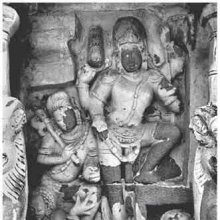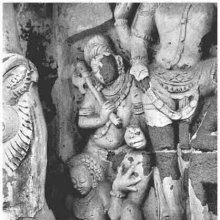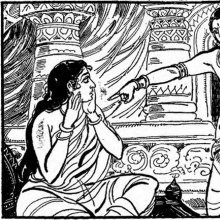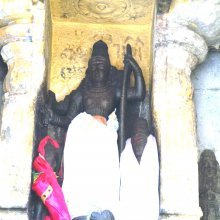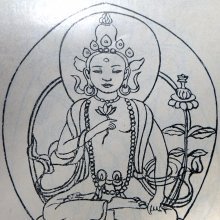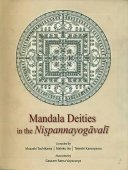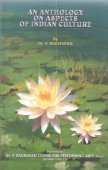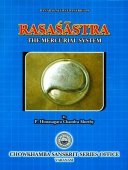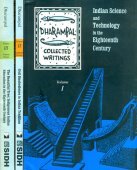Father: 1 definition
Introduction:
Father means something in Jainism, Prakrit. If you want to know the exact meaning, history, etymology or English translation of this term then check out the descriptions on this page. Add your comment or reference to a book if you want to contribute to this summary article.
Images (photo gallery)
(+21 more images available)
In Jainism
General definition (in Jainism)
Source: The University of Sydney: A study of the Twelve ReflectionsA Father cannot stop the soul going at the moment of death, as discussed in Bhūdhardās’s composition dealing with the twelve reflections (bhāvanā or anuprekṣā), also found in the Tattvārtha-sūtra.—Accordingly, “[all things are impermanent]—King, prince or emperor, an elephant’s mahout: everyone dies someday each at his own time. (1) [there is no shelter] Powerful friends, a goddess or a god, mother, father, family: they can do nothing to stop the soul going at the moment of death. (2) [cycle of rebirth] So poor you cannot meet the cost, you suffer. You are entranced by the desire for wealth. Nowhere in saṃsāra will you find happiness no matter where you look in the world. (3) [...]”.

Jainism is an Indian religion of Dharma whose doctrine revolves around harmlessness (ahimsa) towards every living being. The two major branches (Digambara and Svetambara) of Jainism stimulate self-control (or, shramana, ‘self-reliance’) and spiritual development through a path of peace for the soul to progess to the ultimate goal.
See also (Relevant definitions)
Full-text (+5281): Pitri, Janaka, Shvashura, Vasudeva, Pitribhakti, Tata, Avuka, Pitamaha, Matapitri, Dvyamushyayana, Pandu, Vyahi, Sharirakartri, Matamaha, Paitrika, Shukapitamaha, Dhumrashva, Pitika, Damaghosha, Bhukashyapa.
Relevant text
Search found 426 books and stories containing Father; (plurals include: Fathers). You can also click to the full overview containing English textual excerpts. Below are direct links for the most relevant articles:
The Brihaddharma Purana (abridged) (by Syama Charan Banerji)
Chapter 57 - Origin of mixed castes
Chapter 2 - On the different classes of Dharma and Gurus
Chapter 3 - Story of Kritabodha, the Brahmana, and Tuladhara, the fowler
Historical Elements in the Matsya Purana (by Chaitali Kadia)
Śrāddha in the Matsya Purāṇa < [Chapter 5 - Cultural history in the Matsya-Purāṇa]
Family life according to the Matsya Purāṇa < [Chapter 5 - Cultural history in the Matsya-Purāṇa]
Debt in the Matsya Purāṇa < [Chapter 5 - Cultural history in the Matsya-Purāṇa]
Hiranyakesi-grihya-sutra (by Hermann Oldenberg)
Manusmriti with the Commentary of Medhatithi (by Ganganatha Jha)
Verse 3.55 < [Section VI - Rules Regarding Marriage]
Verse 2.145 < [Section XXV - Meaning of the Title ‘Ācārya’]
Verse 10.40 < [Section II - Mixed Castes]
Satapatha-brahmana (by Julius Eggeling)
Kāṇḍa II, adhyāya 4, brāhmaṇa 2 < [Second Kāṇḍa]
Kanda II, adhyaya 6, brahmana 1 < [Second Kanda]
Kāṇḍa II, adhyāya 1, brāhmaṇa 3 < [Second Kāṇḍa]
Harivamsha Purana (by Manmatha Nath Dutt)
Chapter 17 - The Origin of Pitris and Fruits of Sraddhas (continued) < [Book 1 - Harivamsa Parva]
Chapter 14 - Brahma’s Creation < [Book 3 - Bhavishya Parva]
Chapter 32 - An Account of Riceyu’s Family < [Book 1 - Harivamsa Parva]
Related products
(+7 more products available)
